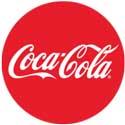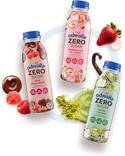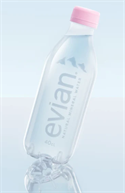Coca-Cola
Coca-Cola India Embarks On Home Delivery Program As Part Of Localization Initiative

The company has partnered with government-sponsored Common Services Centers (CSCs) to deliver its beverages to homes in rural India. CSCs, under the aegis of the Ministry of Electronics and Information Technology, will now list Coca-Cola products such as Fanta, Sprite, and Coca-Cola on its Grameen eStore platform the products will also be available via local entrepreneurs and e-kirana stores. CSCs serve as an access point for e-delivery of education, groceries, and agriculture in India’s villages. Coca-Cola India has planned a pilot project in five states: Andhra Pradesh & Telengana, Tamil Nadu, Uttar Pradesh, and Haryana.[Image Credit: © The Coca Cola Company]
Seven Of Sprite’s APAC Markets Have Switched To Clear PET Bottles
CCEP Goes All-Natural With Capri-Sun Ingredients
Coca-Cola Discontinues Minute Maid Smoothie Brand Odwalla

Bowing to what it calls a “rapidly shifting marketplace,” Coca-Cola’s Minute Maid Business will discontinue the juice/smoothie brand Odwalla at the end of the month “despite every effort to support continued production." The company said it has been assessing Odwalla’s business for several years, and decided consumers just aren’t that into smoothies anymore. The company said the decision has nothing to do with the coronavirus pandemic, although food companies are cutting back on product offerings during the crisis to streamline operations and meet growing demand for more popular items. To preserve freshness, Odwalla products were transported by a fleet of 230 refrigerated trucks, complicating the supply chain. Minute Maid is dissolving that distribution network as well.[Image Credit: © Odwalla Inc.]
12-Year Coca-Cola Veteran Bruno Pietracci Takes The Reins At Africa & Middle East Unit

Coca-Cola has named 46-year-old Bruno Pietracci as president of Africa & Middle East. He is succeeded as business unit president for the Southern & East Africa region by Matrona Filippou, a 24-year veteran of the company. In separate statements, the two executives emphasized the importance of growth in the “extremely challenging” times of the coronavirus pandemic.[Image Credit: © The Coca-Cola Company]
Danone
Evian Drops Plastic Label, Debuts Water Bottle With Engraved Logo
 As part of its efforts to be a fully circular brand, with all bottles made from 100% recycled plastic by 2025, Evian has launched a label-free 400 ml bottle that features an “Evian pink” bottle cap. Since labels or the adhesives they use are typically non-recyclable, their presence on a bottle complicates recycling. The new Evian bottle sidesteps this by engraving the logo and tag as the bottle is being formed.
As part of its efforts to be a fully circular brand, with all bottles made from 100% recycled plastic by 2025, Evian has launched a label-free 400 ml bottle that features an “Evian pink” bottle cap. Since labels or the adhesives they use are typically non-recyclable, their presence on a bottle complicates recycling. The new Evian bottle sidesteps this by engraving the logo and tag as the bottle is being formed.This is an elegant solution to the label problem, but raises a couple of issues. One is that the cap is still made from non-recycled material. The other is that the bottle does not have a bar code, which means it cannot yet be sold in stores. Instead, it’s suitable for online sales where barcodes are not needed. As well as restaurants, hotels and hospitality venues. The company did not provide any insight into the additional cost entailed by this process, but did say the innovation took about two years to implement. The bottle will be available in France beginning this month, and in additional countries from September.
A Danone research engineer said the new engraved logo preserves the natural beauty of the bottle and brings it “closer to the water’s purity.” “Our revolution makes old plastic the ultimate new innovation,” he added.[Image Credit: © Evian (Danone S.A.)]
Keurig Dr Pepper
Keurig Dr Pepper Sponsors ”Polypropylene Recycling Coalition”
Monster
Monster Beverage Contemplates Alcoholic Drinks Market
.jpg&width=125&height=56) An industry analyst says energy drink maker Monster Beverage is considering an entry into the alcoholic beverage market, “most likely” with a value-added hard seltzer. “We think Monster is likely to seek distribution via a large beer network, with a product rollout in 2021,” said Stifel Financial analyst Mark S. Astrachan. The hard seltzer segment is valued at more than $2 billion and continues to grow at triple-digit rates. The analyst said Monster may launch a non-alcoholic sparkling water under the Monster brand, but an alcoholic version could be a new brand, such as Reign Total Body Fuel, without the Monster name.[Image Credit: © Monster Energy Company]
An industry analyst says energy drink maker Monster Beverage is considering an entry into the alcoholic beverage market, “most likely” with a value-added hard seltzer. “We think Monster is likely to seek distribution via a large beer network, with a product rollout in 2021,” said Stifel Financial analyst Mark S. Astrachan. The hard seltzer segment is valued at more than $2 billion and continues to grow at triple-digit rates. The analyst said Monster may launch a non-alcoholic sparkling water under the Monster brand, but an alcoholic version could be a new brand, such as Reign Total Body Fuel, without the Monster name.[Image Credit: © Monster Energy Company]
Nestle
Nespresso To Spend Millions To Upgrade Swiss Production Facility
Nestlé Canada Sells Pure Life To Canadian Bottled Water Producer
 The sale of Nestlé Pure Life bottled water business to family-owned water producer Ice River Springs of Shelburne, Canada, includes two Pure Life factories located in Puslinch, Ontario and Hope, British Columbia, along with a well in Erin, Ontario. The sale follows a Nestlé Canada decision in late 2019 to focus on its international brands: San Pellegrino, Perrier, and Acqua Panna. Ice River Springs produces private label bottled water for retailers and markets the Ice River water brand. The company also runs a plastics recycling operation, BMP Recycling. The sale is contingent on completion of the regulatory review process and the deal is expected to close in Q3 2020. Until completion of the regulatory review, the Nestlé Pure Life bottled water business will continue to be run by Nestlé Canada.[Image Credit: © Nestlé Waters North America Inc.]
The sale of Nestlé Pure Life bottled water business to family-owned water producer Ice River Springs of Shelburne, Canada, includes two Pure Life factories located in Puslinch, Ontario and Hope, British Columbia, along with a well in Erin, Ontario. The sale follows a Nestlé Canada decision in late 2019 to focus on its international brands: San Pellegrino, Perrier, and Acqua Panna. Ice River Springs produces private label bottled water for retailers and markets the Ice River water brand. The company also runs a plastics recycling operation, BMP Recycling. The sale is contingent on completion of the regulatory review process and the deal is expected to close in Q3 2020. Until completion of the regulatory review, the Nestlé Pure Life bottled water business will continue to be run by Nestlé Canada.[Image Credit: © Nestlé Waters North America Inc.]
Wahaha
Food And Beverage Giant Wahaha Ponders Billion-Dollar IPO
.jpg&width=125&height=64) Chinese beverage company Hangzhou Wahaha Group Co. is considering an initial public offering that could raise more than $1 billion, Bloomberg reports. An adviser is working with the company on the IPO, which would probably take place in 2021. Wahaha markets products ranging from bottled water, yogurt drinks, and juice to instant noodles, sold in more than 30 countries, including Canada, Singapore, and the U.S. It maintains 80 production plants and employs about 30,000 workers. Bloomberg notes that Wahaha joins fellow Hangzhou-based beverage firm Nongfu Spring Co. in seeking a first-time share offering. Nongfu filed for its Hong Kong IPO in late April and plans to raise about $1 billion.[Image Credit: © Hangzhou Wahaha Group Co.,Ltd.]
Chinese beverage company Hangzhou Wahaha Group Co. is considering an initial public offering that could raise more than $1 billion, Bloomberg reports. An adviser is working with the company on the IPO, which would probably take place in 2021. Wahaha markets products ranging from bottled water, yogurt drinks, and juice to instant noodles, sold in more than 30 countries, including Canada, Singapore, and the U.S. It maintains 80 production plants and employs about 30,000 workers. Bloomberg notes that Wahaha joins fellow Hangzhou-based beverage firm Nongfu Spring Co. in seeking a first-time share offering. Nongfu filed for its Hong Kong IPO in late April and plans to raise about $1 billion.[Image Credit: © Hangzhou Wahaha Group Co.,Ltd.]
Copyright 2026 Business360, Inc.

